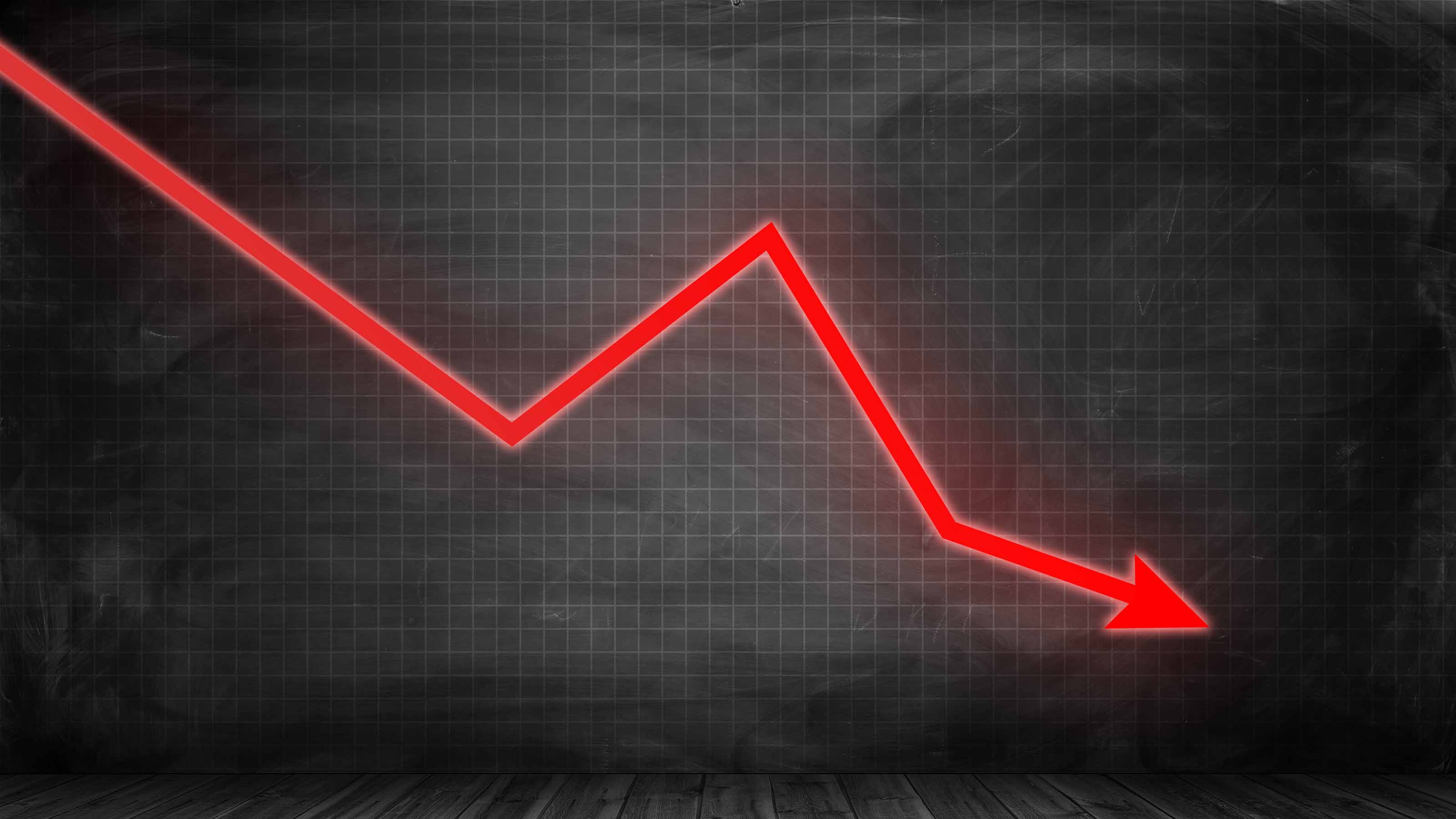
Stocks opened lower Wednesday and continued declining as the session wore on as a rare downgrade to the U.S. credit rating spooked investors.
Also on Wall Street's radar today was a much higher-than-expected reading on private payrolls, though this did little to change expectations about what the Federal Reserve will do with interest rates at its September meeting.
Late Tuesday, Fitch Ratings downgraded the long-term credit rating for the U.S. to AA+ from AAA. "The repeated debt-limit political standoffs and last-minute resolutions have eroded confidence in fiscal management," the ratings agency said in a statement. This is just the second time in history that the U.S. has seen its credit rating downgraded. In August 2011, Standard & Poor's lowered the country's long-term credit rating amid another fight over lifting the debt ceiling.
"While not necessarily wrong in its assessment, the rating downgrade will likely not have an impact on U.S. government debt or markets broadly," says Lawrence Gillum, chief fixed income strategist for LPL Financial. "The U.S. remains the safe haven during times of market stress and the downgrade will likely not change that."
Part of investors' anxiety related to the credit rating may have to do with what stocks did back in 2011, with the S&P 500 shedding about 8% over the next two months. But ultimately, the market stabilized and resumed its longer-term uptrend.
Private payrolls come in hot
Meanwhile, ADP this morning said the U.S. added 324,000 private jobs in June, blowing past economists' estimates for a gain of 175,000. "Wall Street typically shrugs off the ADP report, especially considering we have only seen a year of its reporting with their new methodology," says Edward Moya, senior market strategist at currency data provider OANDA. "This is still an impressive print and should support the Fed hawks argument that the labor market is still tight and that they might not yet be done with raising rates."
However, futures traders are currently pricing in an 82.5% chance of a pause at the next Fed meeting in September, according to CME Group.
AMD stock sinks after earnings
On the earnings front, semiconductor stock Advanced Micro Devices (AMD) tumbled 7.0% as the company's second-quarter data center revenue came in below estimates. Still, AMD's earnings and total revenue beat expectations.
CVS Health (CVS) was another post-earnings mover, with shares climbing 3.3%. The drugstore chain and healthcare services company reported higher-than-expected second-quarter earnings and revenue due in part to surging sales in its healthcare benefits segment.
At the close, the Nasdaq Composite was down 2.2% at 13,973, the S&P 500 was off 1.4% at 4,513, and the Dow Jones Industrial Average was 1.0% lower at 35,282. However, the major indexes remain comfortably higher on the year, with the Nasdaq up 33.5%, the S&P 500 boasting a 17.6% return and the Dow sitting on a 6.4% advance.
"In the big picture, some kind of a pullback was overdue, after the sizzling run we've had, " says Louis Navellier, chairman and founder of Navellier & Associates. "At least we can identify the reason today."







